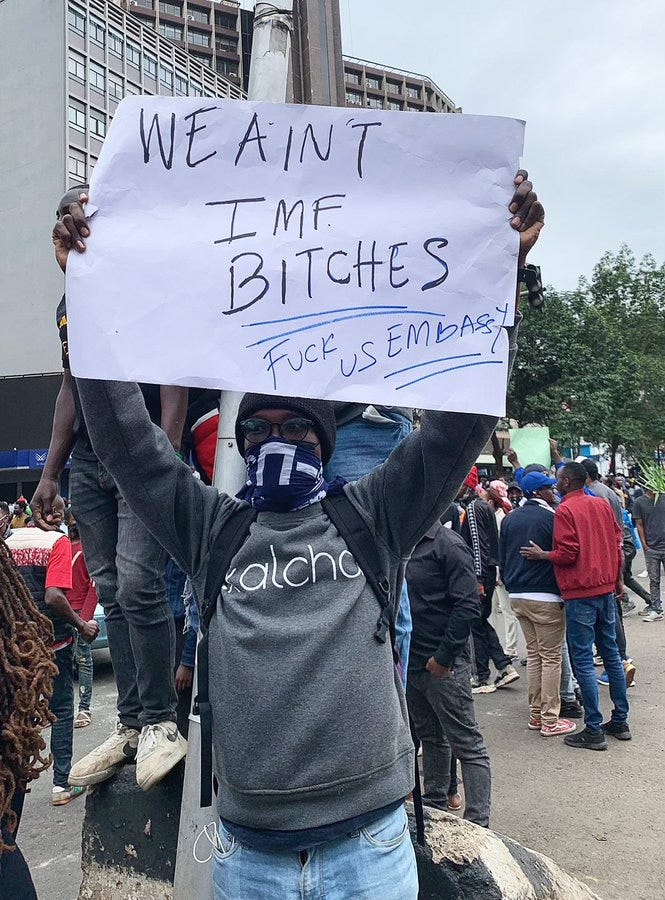Economic Nationalism For Me, Austerity For Thee
The greatest trick the devil ever pulled was convincing the world that neoliberalism no longer exists.
In a recent post, I lamented:
The world we’re currently creating is one in which countries that have the means will become “post-neoliberal” while everyone else will be forced to keep being immiserated by neoliberalism until something just breaks.
The bubbling situation in Kenya, captured in the image above, proves my point. So does this, which comes from observations on the ground in Sri Lanka:
In the wake of socio-economic catastrophe…there is no change of philosophy among the [Sri Lankan] elite. There is no talk of industrial policy, or boosting national production, or expansion of the home market through redistributive taxes and investment in public services, or controls on prices of essentials including food and energy.
For the rich and powerful, it is business-as-usual. There has been no displacement of neoliberalism as the ruling ideology of the ruling class nor its publicists in think-tanks, university economics departments, and the mass media...This crisis is not over. Not for the dominated classes. Nor for the dominant.
I’ve made versions of this argument for a while. In fact, I was one of the first to argue that the “New Washington consensus,” Bidenomics, and America’s newfound embrace of economic nationalism—none of it is as it seems.
America’s ability to do economic nationalism comes at the expense of much of the rest of the world’s ability to do the same. It’s a zero-sum paradigm that works mostly by obscuring who benefits and who is harmed. Politicians are playing us (and possibly themselves) for suckers. And in order to make the nationalist turn in political economy, great-power competition becomes a necessary source of mystification of the unequal exchange between the rich few and everyone else.


